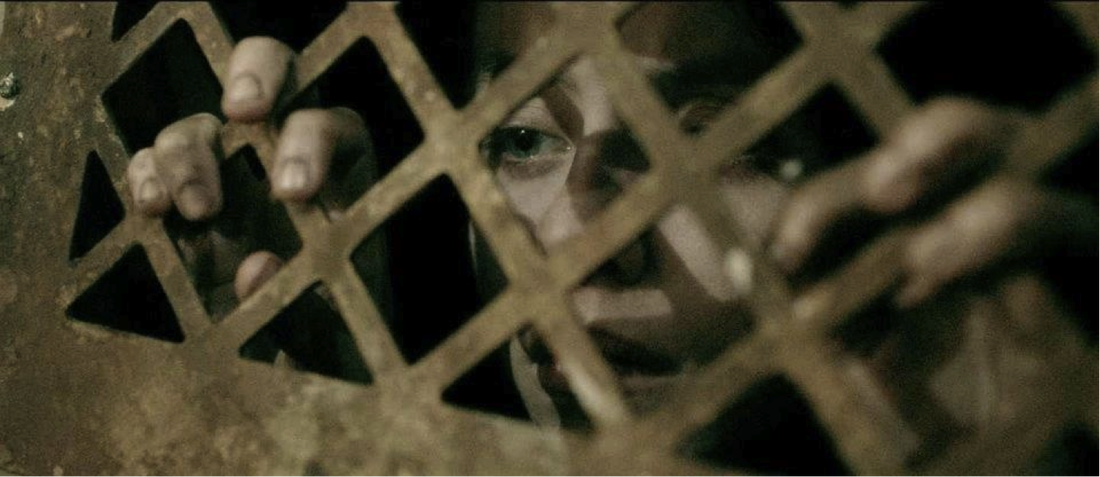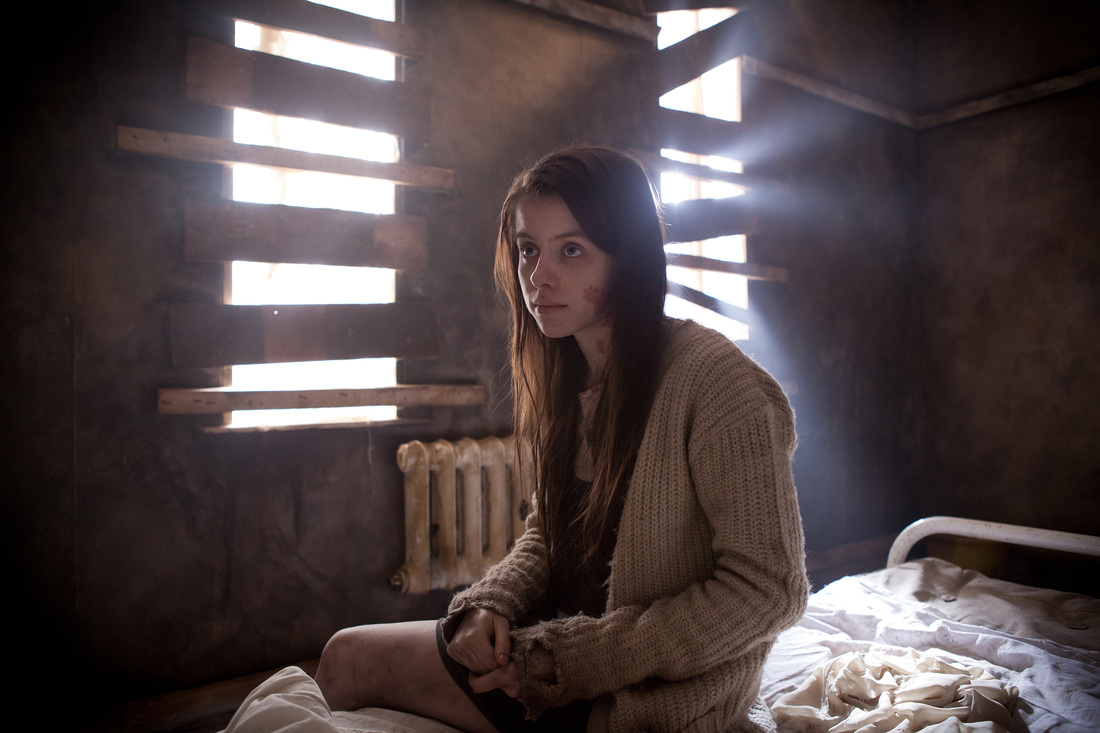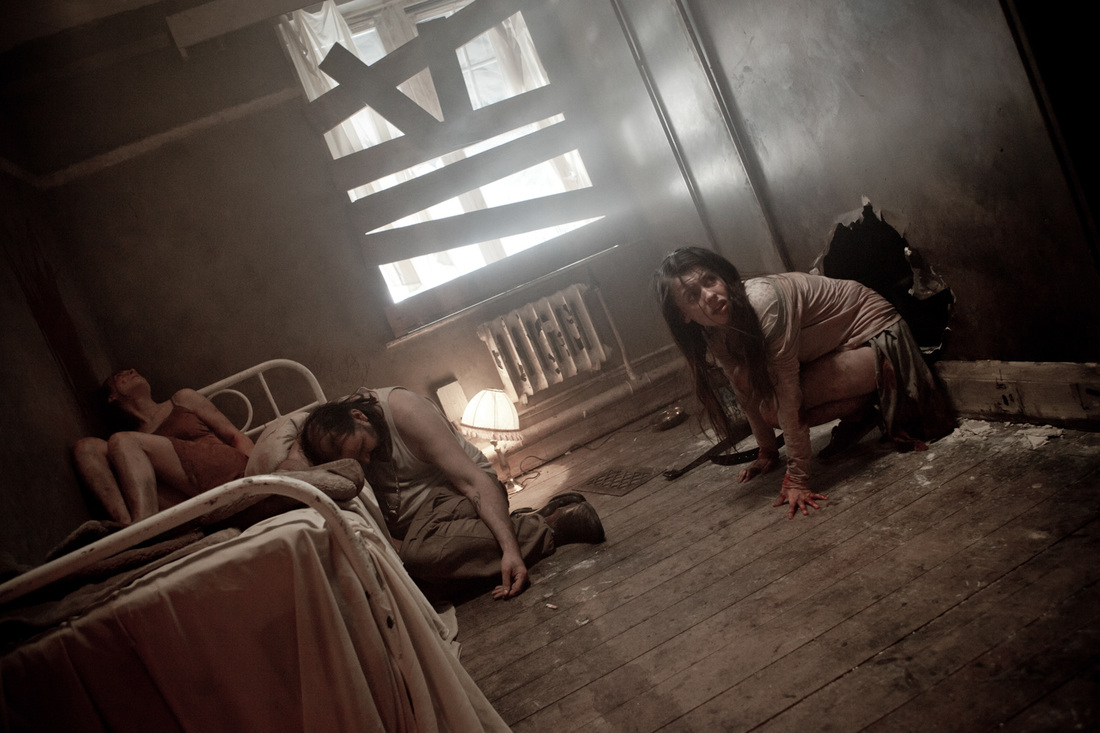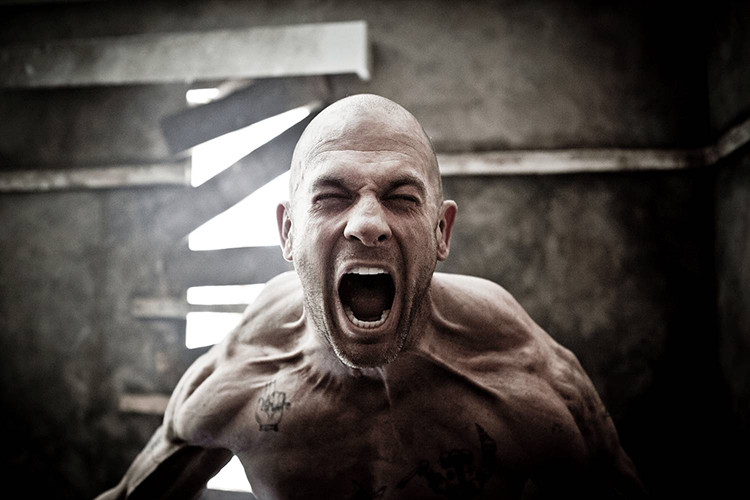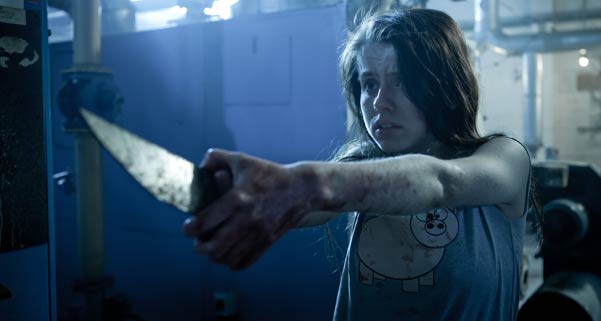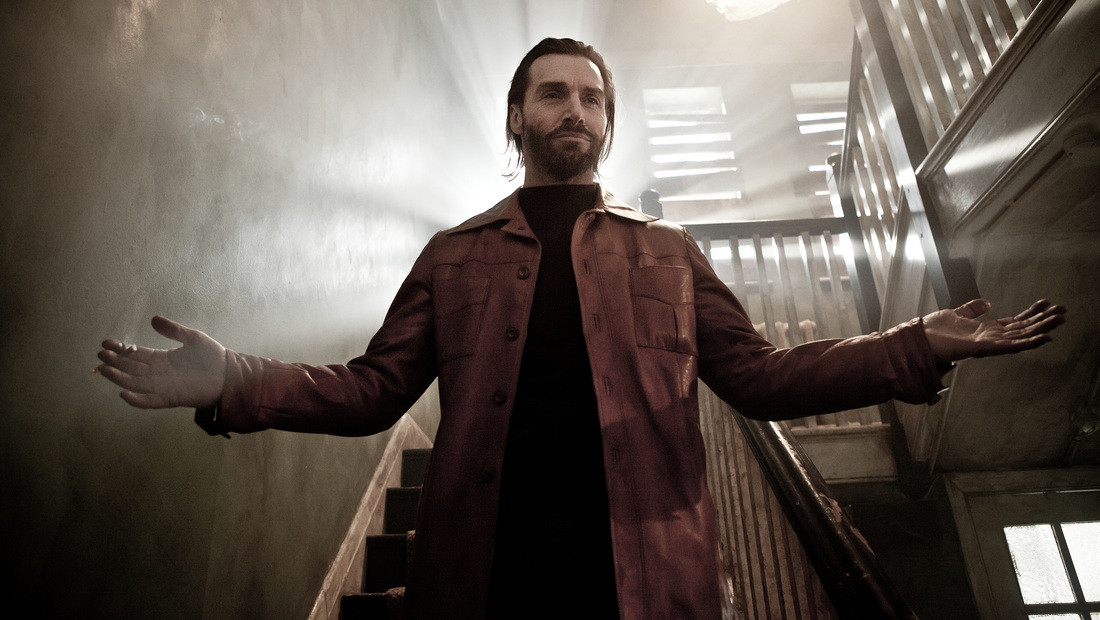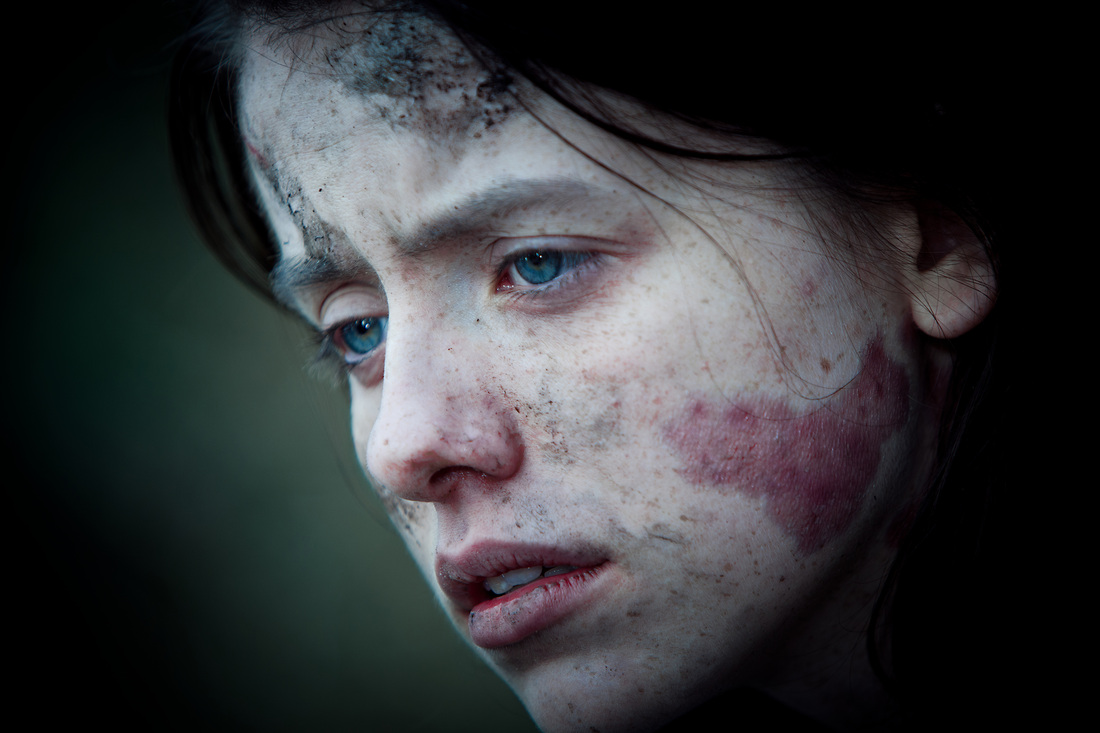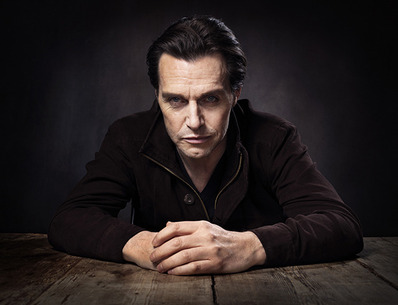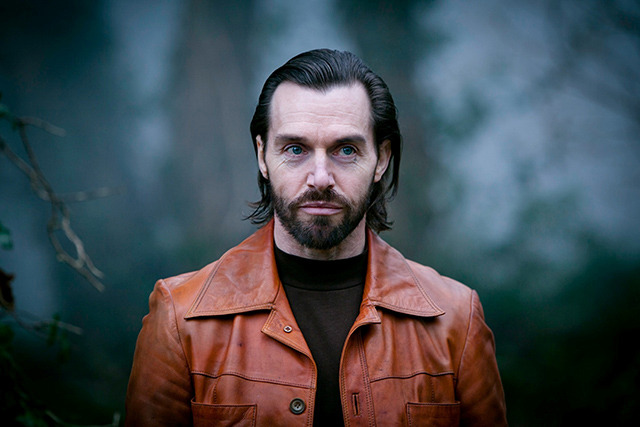The Seasoning House
|
EXCLUSIVE INTERVIEW! Diegesis also caught up with British actor Kevin Howarth about his role in The Seasoning House, horror movies, zombies and the human fascination with death. |
|
Experienced prosthetics and special makeup effects designer (The Descent, Eden Lake, Red Riding trilogy, Attack the Block) and first-time director Paul Hyett brings us a new horror film. The Seasoning House is a dark and graphic tale of the brutal militia and terrifying sex trade in a war-ravaged Balkans brothel that serves as a prison for abducted girls.
When her family falls victim to war crimes, deaf-mute Angel (Rosie Day) is abducted and forced into sexual slavery at the hands of the Viktor (Kevin Howarth), the manager of the “Seasoning House”. The title provides an apt metaphor to describe the physical and emotional damage that these girls suffer at the hands of the power-hungry military men who pay to dominate and abuse them. The men change them from their pure states, adding more “flavour” to suit their tastes and aging them before their time. Forced to prepare the other girls for their various visitors, Angel hides within the walls and crawlspaces to escape the terrors around her until one day she witnesses the brutal rape and murder of her friend and decides to seek revenge. The focus on abduction, physical and sexual abuse echoes films like Hostel (2005) or even Taken (2008) but viewers expecting something as gruesome and twistedly brilliant as Hostel or a polished Hollywood-style action thriller such as Taken, will be surprised by Hyett’s debut production. Indeed, after reading the synopsis and viewing the trailer I was initially apprehensive about watching the film, fearing an onslaught of brutal rape and murder in almost every scene like a more literal and explicitly pornographic version of the Saw (2004-2010) films. However, The Seasoning House offers a more emotive approach to the underlying issues of war and abuse rather than gratuitous sex and violence. The more explicit scenes are designed to create discomfort and invite you to consider the inhumane treatment rather than just the spectacle of flesh and blood. The film suggests innocence is not just lost as a consequence of war, it is unforgivingly taken.
Hyett shows great potential as a director. Scenes are skilfully crafted to represent Angel’s daily experiences in the house with an eerie combination of a tracking camera, revealing the distressing treatment in prison-like surroundings, and a disjointed but soothing soundtrack that drowns out any screams and speech. The entire film is shot with a desaturated colour palette, which gives the film a cold, gritty and aged patina. The gory makeup is satisfyingly realistic, to be expected from someone of Hyett’s background, yet some of the special effects lack impact in their execution calling attention to the difference in quality compared to Hollywood horror flicks with greater financial investment. Some narrative choices also appear somewhat misjudged and not in keeping with the overall film, such as a scene that takes place in a house bizarrely decorated with pig icons.
These issues aside, the film features some strong performances. Kevin Howarth as Viktor (below) is charismatic yet cruel in a way that tricks viewers into a false sense of security only to assault the viewer later on. Sean Pertwee as militia leader Goran is suitably cold and merciless. But it is Rosie Day as Angel who gives the most affective performance. Despite her character’s desperate and violent actions and the abuse she has suffered, she provides a beacon of hope and light in dark surroundings. Indeed, Day’s child-like innocence and strength drives the film forward.
There is a chance that The Seasoning House may get lost among the contemporary spate of torture-porn films or be quickly dismissed by those looking for ultra-violence. But those who delight in film violence and gore looking for something with a more meaningful narrative will thoroughly appreciate this promising directorial debut.
|
Diegesis Magazine / Tell us about your character Viktor in The Seasoning House. What drew you to the role? The film takes place towards the latter years of the nineties Balkan conflict and Viktor is an ex-paramilitary-turned-war-criminal who is using every shady trick and dodgy deal in the book to keep himself safe. He is financing himself through the sex slave trade business by running a very brutal brothel (the eponymous Seasoning House). He is a callous, amoral and extremely dangerous character. I’m always drawn to complex characters and once I’d read the script a few times I could sense Viktor’s complexities and personal dilemmas. I was intrigued with the idea of exploring this man and searching for the chinks of light as well as the darkness in him.
Diegesis Magazine / How was it working with Paul Hyett on his directorial debut? Great! Paul was focused, prepared, trusting and extremely calm. He had a vision for the project. But I’ve known Paul a long time and he has a lot of filming experience under his belt so I didn’t expect anything less of him. He knows what is needed to create the right kind of atmosphere and to get the job done properly. He was a joy to work alongside and, with the right scripts, I think he’ll do really well as a director.
Diegesis Magazine / More than being a generic horror film, The Seasoning House deals with some pretty big controversial themes and issues (war, violence, rape, politics). How do you approach this as an actor? The most important thing for me right from the get-go was that the subject matter in The Seasoning House was not trivialised and thankfully Paul was never going to let that happen. You’re right, there are some controversial themes here and it’s a fine line you skate when making a film of this nature: when is it entertainment and when is it not? The only way to approach it as an actor is to be truthful. For me, it’s the only way to approach any role.
Diegesis Magazine / You are known mainly for roles in horror films, what is it about the genre that appeals as an actor? Well…I didn’t actively hunt down the roles I’ve played, they’ve sort of found me. It’s all just timing really and, frankly, some of it not so great timing! It’s also debatable whether some of the films I’ve been in, despite being marketed as horror films, are actually horror films. In all honesty, working in the genre of horror is no more and no less appealing to me than working in any other genre. I consider myself an all-round actor and all I really crave from the job is to do good work with good people and hope then that no one cocks it all up!
Diegesis Magazine / What horror film have you watched more than any other? Hmmm…that’s a new one…I don’t really know. I suppose I would have to say Alien and then a close triple-tie for second place between The Shining, The Omen (the original) and The Exorcist.
Diegesis Magazine / You are also well known for your voice acting in video games, how does that kind of work compare to working in film? There’s no comparison really, they are both very different platforms. In most of the video games I’ve done the characters and particularly the dialogue tend to be more exaggerated; they are mostly unreal characters in a fantasy world. Working in film is my preference, but acting with your voice is still acting and you are still creating a character. It’s not only a great discipline but also great fun too and unfortunately underrated.
Diegesis Magazine / We’re also looking forward to seeing you in Gallowwalkers with Wesley Snipes, which looks like Blade meets Django Unchained with zombies. What can we expect? I have absolutely no idea! I’ve seen the trailer but I haven’t seen the final film yet! When I first signed up to play the role of Kansa in Gallowwalkers the storyline was a lot different from what I understand the final product has become. In the beginning, I thought it was an intriguing concept to blend the spaghetti style western with the supernatural world of the undead, and in the original script the central characters had some substance to them. However, the final vision of any film is always in the hands of others and it’s no secret that Gallowwalkers became a troubled production. Have these issues resulted in a radically different film? It’s going to be a curiosity that’s for sure!
Diegesis Magazine / Gallowwalkers joins a wave of other recent zombie narratives such as World War Z, the French TV series The Returned, Warm Bodies and The Evil Dead remake. Why do you think audiences are drawn to zombie films? Well it’s interesting that you mention those particular films, because what I find fascinating about them is their different takes on the actual “zombie” character. Films that incorporate storylines for “zombies”, or the “living dead”, are always being reinvented or deconstructed and that’s probably why audiences like to check them out. A “zombie” flick can be made to cross over into so many different genres. There may also be another truth here: that it’s just human nature to be attracted to the subject of death.
Diegesis Magazine / Who would you really like to work with in the future and why? Hmmm…I guess I could draw up a long list of great directors, actors and actresses now, but honestly it would be too long to contemplate. What would be wonderful is to get the opportunity to work with the people I have in my mind that I believe to be great and then have my beliefs confirmed. Now that really would be a joy!
Diegesis Magazine / What can we expect from you in the future? Right now, I’m reading a few scripts and I am in discussions about a couple of other projects. I’m also writing some ideas of my own down and planning other ventures. Who knows what the future holds? It can turn on a sixpence!
The Seasoning House is out on DVD now. |

